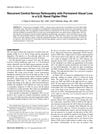commercial product with a blend of mostly natural ingredients for hair regrowth
signaling protein that, when suppressed, may grow hair by reducing inflammation and stem cell loss
natural substance from Neem tree with medicinal and pesticidal properties




